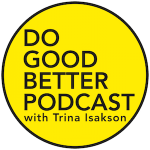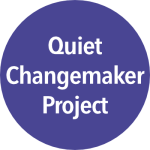Unless you know that you want a career that requires a professional designation or deep knowledge in one area, do a general degree – eg General Arts, General Science. Take the courses that pique your interest. See where it takes you.
Your degree does not define you. Sure, it might now, while connecting with other students, helps them fit you into a box. But the rest of the world doesn’t work that way. Your life choices in general define you – i.e. you define you. The sum of the courses, workshops, events, volunteer roles, jobs, travel experiences, passion projects and other life experiences define you. My undergrad was in Biology and Chemistry. It was right for me at the time. But now I do consulting and research on issues facing the nonprofit sector. It’s been a short 13 years since I finished my time at UBC. A lot can happen if you intentionally choose your life.
Negotiate for salary, even your first “career” job. And if that’s not negotiable, negotiate for benefits that fit your interests – vacation time, flexible schedule, support for professional development, etc. Read “Ask for It” by Babcock and Laschever. Especially women and non-alpha people in general.
Your first job does not define you. My first job was as a high school science and math teacher. It was the right job for me at that time, but it was not meant to be my life’s work.
Shorten your cover letter. Trust me, it’s too long. And most university students can probably fit a resume onto one page. Definitely don’t go more than two. Don’t.
Don’t do a masters degree right away. Even if you want to go into academia. If you’re worried about your job prospects after an undergrad, getting a masters degree won’t get you any further ahead, you’ll just have spent more money. Choose a masters degree once you have some relevant work and life experience that you bring into a learning environment. You will benefit and so will your classmates. Do a masters degree because of personal interest in learning, or to learn from specific people and classmates. And once you get your footing in the non-academic world, you might find that a masters degree isn’t actually what you need and want. I did an MBA after 5 years experience (and did it while continuing to work full time), and I’m glad I had the perspective of professional work experience.
Look at your resume and cover letter from a few feet away. Can you distinguish different sections? Does it look pretty? Fix it until it does. Don’t use Arial or Times New Roman. Or Comic Sans.
Always pay attention to what interests you. A workshop caught your eye? A person interest you? A book draws you in? A topic got you talking? Even if you don’t know where you want to go in your career, pay attention to your attention, and keep moving forward and seeking out experiences.
While in university, take advantage of the free/organized resources and services and experiences at your fingertips. The world outside university is not as supportive. Join clubs, do co-op, do exchanges, take workshops, run for your student association, volunteer for a variety of experiences. If you keep your head down and graduate as soon as you can, you’ll find yourself with less experience of interest for prospective employers, and less self awareness of what drives you and what you’re good at. One or even two extra years will be a benefit, not a cost.
If everything is easy for you, and you always hear yes, you aren’t taking enough risks. See every opportunity as one of a series of small risks. Many will pay off. Some won’t, but in the long run you’ll come out ahead.
Interview senior people in fields/organizations that interest you while still in university. When it’s clear you’re not currently looking for a job, it’s easier to set up informational interviews to learn from and to be inspired by others. Senior folks are more open to students than they are youngish professionals.
Never stop learning. Read. Listen to podcasts. Watch documentaries. Talk with other smart people. It will make you smarter and more interesting and bring you joy.
 For those of you who are addicted to podcasts as I am, I’m imagining something like Dan Savage, but for nonprofit sector/social innovation/doing good advice. Start off with a rant, or perhaps a conversation with someone with an interesting opinion. Then dive into a few listener questions. Finish off with listeners’ feedback on advice I’ve given (e.g. additional advice for a question previously shared).
For those of you who are addicted to podcasts as I am, I’m imagining something like Dan Savage, but for nonprofit sector/social innovation/doing good advice. Start off with a rant, or perhaps a conversation with someone with an interesting opinion. Then dive into a few listener questions. Finish off with listeners’ feedback on advice I’ve given (e.g. additional advice for a question previously shared).